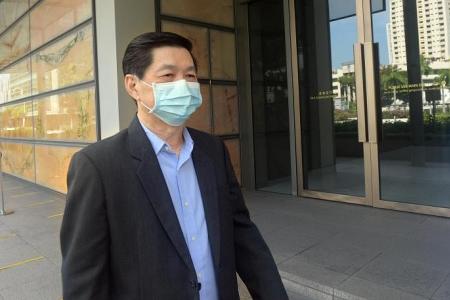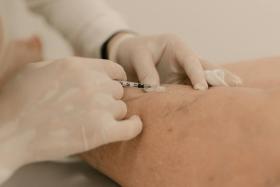Doctor cleared of rape struck off register for overprescribing cough mixture, drugs
General practitioner Wee Teong Boo, 71, who was in 2020 acquitted of raping a patient was struck off the register on Monday for overprescribing cough mixture and depressant drugs known as benzodiazepines.
Dr Wee’s professional misconduct involved 10 patients, including two senior citizens and a minor.
He prescribed codeine-containing cough mixture and benzodiazepines to his patients repeatedly and for no apparent medical reason, even though he was aware that at least five of his patients suffered from existing drug dependency.
A disciplinary tribunal handed down a 20-month suspension in May 2022, after Dr Wee pleaded guilty to 20 misconduct charges: 10 for overprescribing cough mixture and benzodiazepines, and 10 for failing to keep adequate patient medical records.
The Singapore Medical Council (SMC) appealed to the Court of Three Judges to increase the period of suspension. The appeal was first heard in November 2022.
On Monday, the SMC’s lawyer, Mr Edmund Kronenburg, sought a three-year suspension – the maximum under the Medical Registration Act.
The court said it will give detailed reasons at a later date for its decision to strike Dr Wee off the medical register.
The disciplinary proceedings arose over a complaint the SMC received from the Ministry of Health (MOH) in October 2016.
The complaint stated that the ministry was concerned about Dr Wee’s prescribing practices with respect to benzodiazepines and codeine-containing cough mixture.
When Dr Wee was first confronted with the allegations, he explained that he was treating his patients’ addictions using his own “methodology” so they would not have to go to street peddlers in Geylang.
Dr Wee was referred to a disciplinary tribunal for a formal inquiry.
The tribunal, in its grounds of decision, said Dr Wee did not appear to have any structured treatment plan for the 10 patients.
Some of the patients had underlying drug-dependency issues, and the inappropriate prescriptions may have intensified their addictions, said the three-member tribunal.
The tribunal also considered that the inappropriate prescriptions were frequent and made over an extended period of time.
However, the tribunal said Dr Wee was not exploiting his patients for profit and that he was charged with conduct that amounted to serious negligence rather than intentional and deliberate misconduct.
One patient was a woman in her 60s, identified as P15, who saw Dr Wee on 23 occasions between Dec 14, 2014, and Nov 11, 2016.
She was prescribed psychoactive drugs, Diazepam and Xanax on 12 occasions, which increased the risk of potentially lethal drug interactions and of the addiction to such drugs.
Dr Wee’s documentation failed to show why she was repeatedly prescribed benzodiazepines on a continued basis.
He wrote only brief remarks such as “can’t sleep” in her medical records on several occasions.
Another patient, P4, was a minor who saw Dr Wee on 50 occasions between Dec 2, 2011, and Nov 6, 2016.
Dr Wee inappropriately prescribed Dhasedyl, a codeine-containing cough mixture, within four days of the last prescription of codeine-containing cough mixture, on 36 occasions.
A significant number of these prescriptions were given on a daily basis. Dr Wee added dextromethorphan to his cough mixture, which significantly increased the risk of harm to P4.
P4 was also simultaneously prescribed psychoactive drugs, namely Dhasedyl, dextromethorphan and chlorheniramine, on one occasion.
Dr Wee’s documentation failed to show why P4 was repeatedly prescribed codeine on a continued basis, writing only the word “cough” in his records on several occasions.
Dr Wee also faces separate ongoing disciplinary proceedings for inserting ungloved fingers into a patient during a pelvic examination, and using his saliva as the lubricant, without a female chaperone being present.
The charge relates to a patient who had accused him of raping and molesting her in November 2015.
He was convicted of sexual assault instead of rape by the High Court, based on his own admission that he had inserted his ungloved fingers into the patient.
But the Court of Appeal eventually cleared him of all charges.
Get The New Paper on your phone with the free TNP app. Download from the Apple App Store or Google Play Store now


